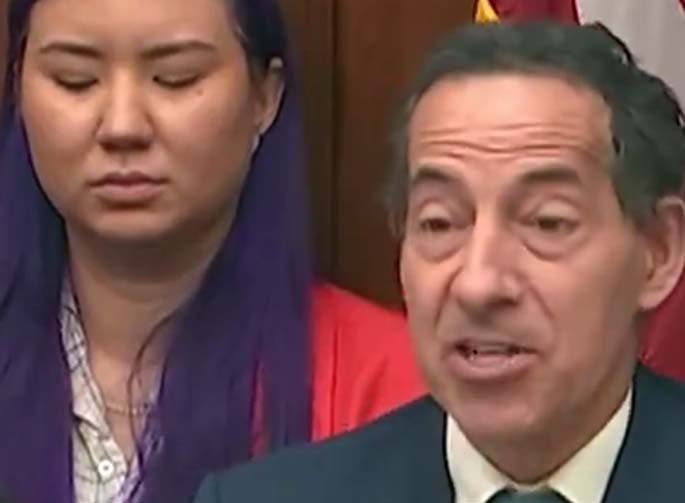Maryland Senator Jamie Raskin is claiming libel and defamation, sayiung misquotes and misinformation about his stance on disqualifying former President Donald Trump are not true.
Raskin strongly denied a widely shared claim that he had vowed to block Trump from taking office in January if he wins, calling it a “100% fabricated” quote intended to “undermine our election.”
Here’s what he did say, “It’s going to be up to us on January sixth, 2025, to tell the rampaging Trump mobs that he’s disqualified. Then we need bodyguards for everybody in civil war conditions, all because the nine justices, not all of them, but these justices who have not many cases to look at every year, not that much work to do, a huge staff, great protection, simply do not want to do their job and interpret what the Great 14th Amendment means. I’m glad that Sheryl is creating her new center so we can bring.”
According to Raskin, these false statements are just another attempt to confuse voters and distort his actual position on election integrity and the legal implications of Trump’s candidacy. He emphasized that the country is in the midst of a “free and fair election,” which Congress will certify according to the will of the voters.
Raskin’s actual comments on Trump’s eligibility stem from ongoing legal discussions over whether Trump’s role in the January 6th insurrection could disqualify him under the 14th Amendment. This amendment, originally crafted to bar Confederate officials from reclaiming power post-Civil War, prohibits anyone who has “engaged in insurrection” against the United States from holding office.
In his remarks, Raskin highlighted that the lack of a Supreme Court decision on this issue has left a degree of uncertainty in the legal landscape. He pointed to the role of the justices in potentially interpreting the amendment, expressing frustration over what he perceives as their reluctance to clarify its meaning. However, he didn’t directly call for Congress to override election results or bar Trump from office without legal grounds.
Despite the clear complexities around this constitutional question, Raskin clarified that his concern is rooted in the law, not partisanship or an outright rejection of voters’ rights. His focus is on a legal interpretation that could ultimately require judicial input to resolve.
In the end, Raskin’s remarks emphasize that any resolution to Trump’s eligibility will depend on established legal procedures, not political agendas, and certainly not the divisive tactics of misinformation campaigns.




